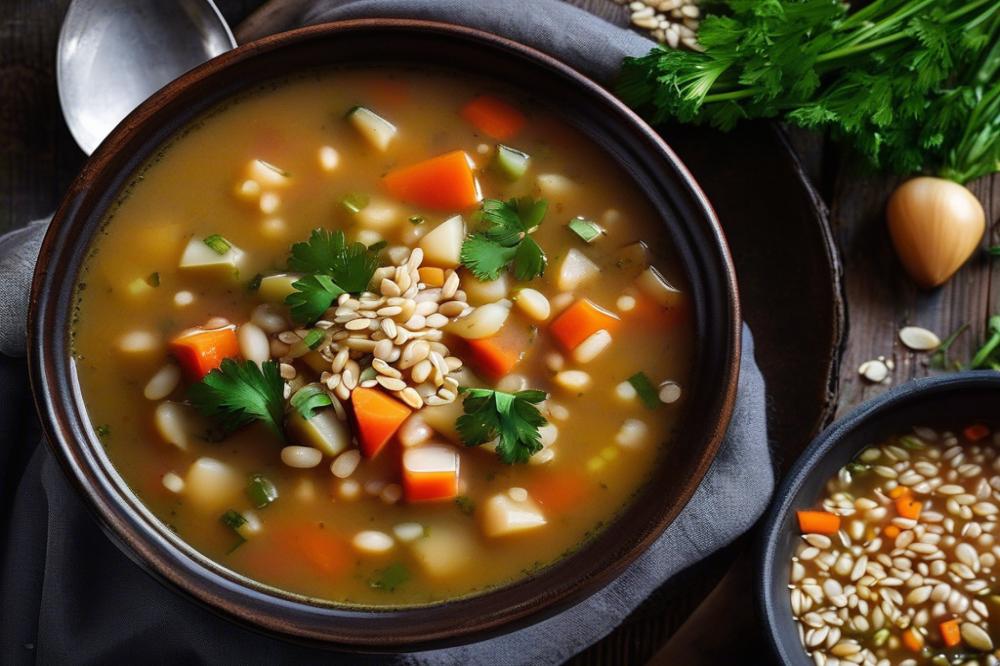Introduction
Queijo de Évora holds a special place in the heart of Portuguese cuisine. This cheese, made from sheep’s milk, originates from the Alentejo region, particularly around the historic city of Évora. Its rich, creamy texture and slightly tangy flavor make it a favorite among locals and visitors alike. The production of this cheese is not just about taste; it represents the area’s agricultural heritage and traditional methods passed down through generations.
On the other hand, the Roasted Vegetable Tart offers a delightful option for those seeking a vegetarian recipe. This dish brings together vibrant vegetables, gently roasted to enhance their natural sweetness, nestled in a flaky pastry crust. It appeals to anyone looking for a satisfying yet healthy meal. The simplicity of the tart allows each ingredient to shine, making it a perfect pairing for various cheese, including Queijo de Évora.
Combining local ingredients in both the cheese and the tart illustrates how culinary traditions evolve while remaining rooted in their origins. Many Portuguese recipes celebrate the bounty of fresh produce and artisanal products. Regional specialties, like Queijo de Évora, provide a unique flavor profile that complements the roasted vegetables beautifully. Together, these elements create a dish that is not only delicious but also a testament to healthy eating and sustainable practices.
Queijo de Évora: A Delicacy of Évora


Queijo de Évora is a traditional cheese from the Alentejo region of Portugal, specifically near the historic city of Évora. This cheese is made from sheep’s milk and has been crafted by local artisans for generations. The region’s rich pastures, abundant in wild herbs, contribute to the distinct flavors found in this artisanal product.
The production process starts with high-quality fresh sheep’s milk. After the milk is heated, rennet is added to curdle it. The curds are then cut and drained, leading to the formation of the cheese. Salt is mixed in, enhancing the flavor. Aging occurs in cool, dark spaces, allowing the cheese to develop its character.
This cheese has a slightly crumbly texture, making it easy to slice. A bit of firm resistance gives way to a creamy mouthfeel. Its flavor profile is rich and sharp, with herbal notes reflecting the natural diet of the sheep. Hints of nutty sweetness linger on the palate, creating a delightful experience.
Évora holds a significant place in Portuguese cuisine, particularly within its cheese-making traditions. As a representation of local culinary practices, Queijo de Évora emphasizes the importance of using local ingredients. The cheese not only supports healthy eating but integrates seamlessly into various dishes.
Incorporating this cheese into a vegetarian recipe, such as a Roasted Vegetable Tart, adds depth and richness. When baking, the cheese melts beautifully, enhancing the overall flavor of the dish. The tart captures the essence of the region, showcasing its culinary treasures and artisanal products. Enjoying a slice of this cheese or a tart filled with roasted vegetables brings a taste of Évora’s heritage to your table.
Ingredients List for Roasted Vegetable Tart with Queijo de Évora


Creating a delicious roasted vegetable tart is simple. Below is a detailed list of ingredients you’ll need along with their approximate quantities:
- 1 pre-made tart shell
- 200g crumbled Queijo de Évora
- 1 medium zucchini, sliced
- 1 bell pepper, diced
- 1 eggplant, diced
- 1 red onion, sliced
- 3 tablespoons olive oil
- 1 teaspoon dried oregano
- Salt and pepper to taste
- 3 large eggs
- 200ml milk
- Fresh basil for garnish
Nutritional Information and Benefits
Each ingredient brings its own health advantages to this vegetarian recipe. For example, the pre-made tart shell is convenient and can often be made from whole grains, adding fiber to your meal. Zucchini is low in calories and packed with nutrients like vitamin C. Bell peppers are rich in antioxidants and help support a healthy immune system.
Eggplant is a great source of dietary fiber and has various vitamins, including B6 and K. Red onions contain quercetin, a powerful antioxidant helpful in reducing inflammation. Olive oil, which you’ll use for roasting, is known for its heart-healthy fats. Dried oregano adds flavor while offering antibacterial properties.
When combining eggs and milk, you enhance the protein content of your tart, supporting muscle health and keeping you full longer. Consider the crumbled cheese as well. It provides a creamy texture and introduces calcium and other beneficial vitamins into the dish, connecting it to the culinary traditions of Évora.
Balanced meals are essential for healthy eating, and this roasted vegetable tart fits the bill. The combination of local ingredients makes it not only a feast for the palate but also a wholesome option for nourishment.
Cooking Instructions for Roasted Vegetable Tart


Start by preheating your oven to 400°F (200°C). This is important for roasting the vegetables properly and achieving a crisp texture. Gather a mix of vegetables such as bell peppers, zucchini, and red onions. Cut them into similar sizes to promote even cooking. Drizzle olive oil over the chopped vegetables in a bowl. Then, add salt and pepper to taste, along with herbs if desired.
Spread the seasoned vegetables on a baking sheet in a single layer. Roasting will bring out their natural sweetness. Bake in the oven for about 25–30 minutes. Toss them halfway through to ensure they roast evenly. Keep an eye on their color; they should be slightly charred but not burnt.
While the vegetables cool, prepare the tart crust. Using a store-bought pastry or making your own from scratch can be effective. If you opt for homemade, mix flour, butter, and a pinch of salt. Add cold water gradually and knead until smooth. Roll out the dough and fit it into a tart pan, trimming any excess around the edges. Prick the bottom with a fork to prevent bubbles.
Next, blind-bake the tart shell. Place a piece of parchment paper over the crust and fill it with pie weights or dried beans. Bake for about 15 minutes until slightly golden. Remove the weights and parchment, then bake for an additional 5 minutes. This step helps the crust maintain its shape and texture.
After roasting, combine the cool vegetables with a generous handful of Queijo de Évora, crumbling it over the mix. This cheese complements the flavors well. Pour the vegetable and cheese mixture into the baked tart shell. Spread it evenly to create a delicious layer.
The final baking step includes returning the tart to the oven for 20–25 minutes. Bake until the top is golden brown and the cheese begins to bubble. Timing may vary, so check frequently towards the end. A perfectly baked tart will have a crispy crust and flavorful filling.
To enhance flavor, consider garnishing with fresh herbs or drizzling balsamic reduction over the warm tart. Serving it hot or at room temperature both work well. This vegetarian recipe highlights fresh, local ingredients and aligns with healthy eating practices drawn from Portuguese cuisine.
Culinary Traditions and Healthy Eating in Portugal


Portugal is known for its rich culinary traditions. Food in this country often highlights local ingredients. Many meals feature fresh produce, herbs, and cheeses that reflect the region’s flavors. One of these is a famous cheese from Évora. It has a distinctive taste and pairs wonderfully with various dishes.
Vegetarian recipes play a significant role in Portuguese cuisine. They showcase the vibrant vegetables grown in the country’s fertile lands. Roasted vegetables become a popular choice in many homes. This preparation method brings out natural flavors. It also retains important nutrients, making it a healthy option.
Eating a vegetarian diet can offer many health benefits. It promotes better heart health and lowers the risk of certain diseases. In addition, incorporating dairy, like cheese, can support bone health and provide essential proteins. This makes a vegetarian meal not only tasty but also nutritious.
Connections exist between traditional recipes and modern healthy eating. Old favorites, like the roasted vegetable tart, find a new life in contemporary kitchens. Baking this dish allows for creativity while honoring past techniques. Each layer of flavors reflects Portugal’s culinary history. This tart can easily be enjoyed at any meal.
Local ingredients are at the heart of Portuguese cooking. Farmers markets buzz with activity, offering an abundance of seasonal produce. Many chefs and home cooks strive to include these fresh items in their recipes. This practice supports healthy eating and strengthens community ties.
Sharing meals also holds great significance in Portuguese culture. Families and friends gather around the table to enjoy delicious food together. Such gatherings create connections and promote a sense of belonging. Meals often include not only a variety of dishes but also good conversation.
Serving Suggestions and Variations
For a delightful meal, consider pairing the roasted vegetable tart with a simple side salad. A mixed green salad with a light vinaigrette adds freshness to the dish. Alternatively, serve it alongside some crusty bread, which can soak up any leftover juices. This combination brings both texture and flavor together on the plate.
When it comes to variations, think about using different types of vegetables. Zucchini, bell peppers, and seasonal squash can provide a vibrant touch. Don’t shy away from trying unconventional options, such as sweet potatoes or even beets. Each substitute brings its own unique flavor, making the tart versatile.
Adapting the recipe for different dietary preferences is also simple. For a dairy-free version, swap out the cheese with a plant-based alternative or omit it altogether. Focusing on the roasted vegetables, you can create a delicious vegan dish that aligns with healthy eating. If gluten is a concern, use a gluten-free crust or make the filling without the crust for a filling dish.
Incorporating local ingredients enhances the overall flavor. Sourcing fresh vegetables from a local market not only supports community farmers, but also offers vibrant tastes that reflect the essence of Évora and Portuguese culinary traditions. Each bite can carry a story of where the food comes from.
Cheese lovers might want to experiment with different varieties. While Queijo de Évora is a wonderful choice, consider using goat cheese for a creamy texture or a sharp feta for a saltier taste. The choice of cheese can elevate the tart and provide a delightful surprise with every slice.
Finally, consider baking the tart in smaller portions. Individual tarts make for an appealing presentation and are perfect for gatherings. Guests will enjoy their own personal serving, and you can offer a variety of fillings to satisfy different palates.
Final Thoughts
The Role of Queijo de Évora
Queijo de Évora holds a special place in Portuguese cuisine. This traditional cheese adds rich flavors and culinary depth to various dishes. Originating from the Alentejo region, it showcases the rich agricultural heritage of Portugal. Local farms produce this cheese with care, contributing to the authenticity of many meals. Culinary enthusiasts enjoy its robust taste, which pairs beautifully with both savory and sweet ingredients.
The Versatility of Roasted Vegetable Tart
Roasted vegetable tart stands out as an excellent vegetarian recipe. Its versatility allows for endless possibilities in flavor combinations. Using seasonal vegetables adds freshness and ensures a colorful presentation. Each bite delivers a harmony of textures and tastes, making it satisfying for any meal. Families can serve it during gatherings, showcasing a delightful balance of nutrition and pleasure.
Embracing Local Ingredients
Exploring local ingredients can enhance one’s culinary experience. Utilizing seasonal produce not only supports nearby farmers but also encourages a healthier diet. Traditional recipes often hold the keys to nutrition and flavor. By incorporating unique flavors into daily meals, individuals can sustain a vibrant lifestyle. The journey into cooking with local resources opens doors to many delicious discoveries.
Enjoy cooking and experimenting! Discovering and enjoying dishes like Queijo de Évora and roasted vegetable tart can enrich one’s palate and promote a healthier life. Embrace the flavors available around you.



